A NEXT for AUTISM Strategic Viewpoint
Three years ago, John, a young man with autism, faced tremendous challenges, limited by his almost nonexistent communication skills. He was labeled as aggressive- scratching, kicking and pushing away any attempts at connection. John’s future looked bleak. But then, in August 2020, a compassionate and dedicated direct support professional (DSP) named Adam entered his life, and things began to change.*
Today, at the age of 24, John resides in a nurturing individual residential home, surrounded by the love and care of Adam, and other DSPs. Under Adam’s guidance, John has begun to grasp various life skills, from handling his own laundry to loading the dishwasher. Each day reveals new facets of John’s capabilities. Yet, perhaps the most profound change in his life lies in his integration into the community. Each day, he and Adam, as well as other DSPs, visit various stores and parks. “We want him to be an active participant in life,” says Adam.
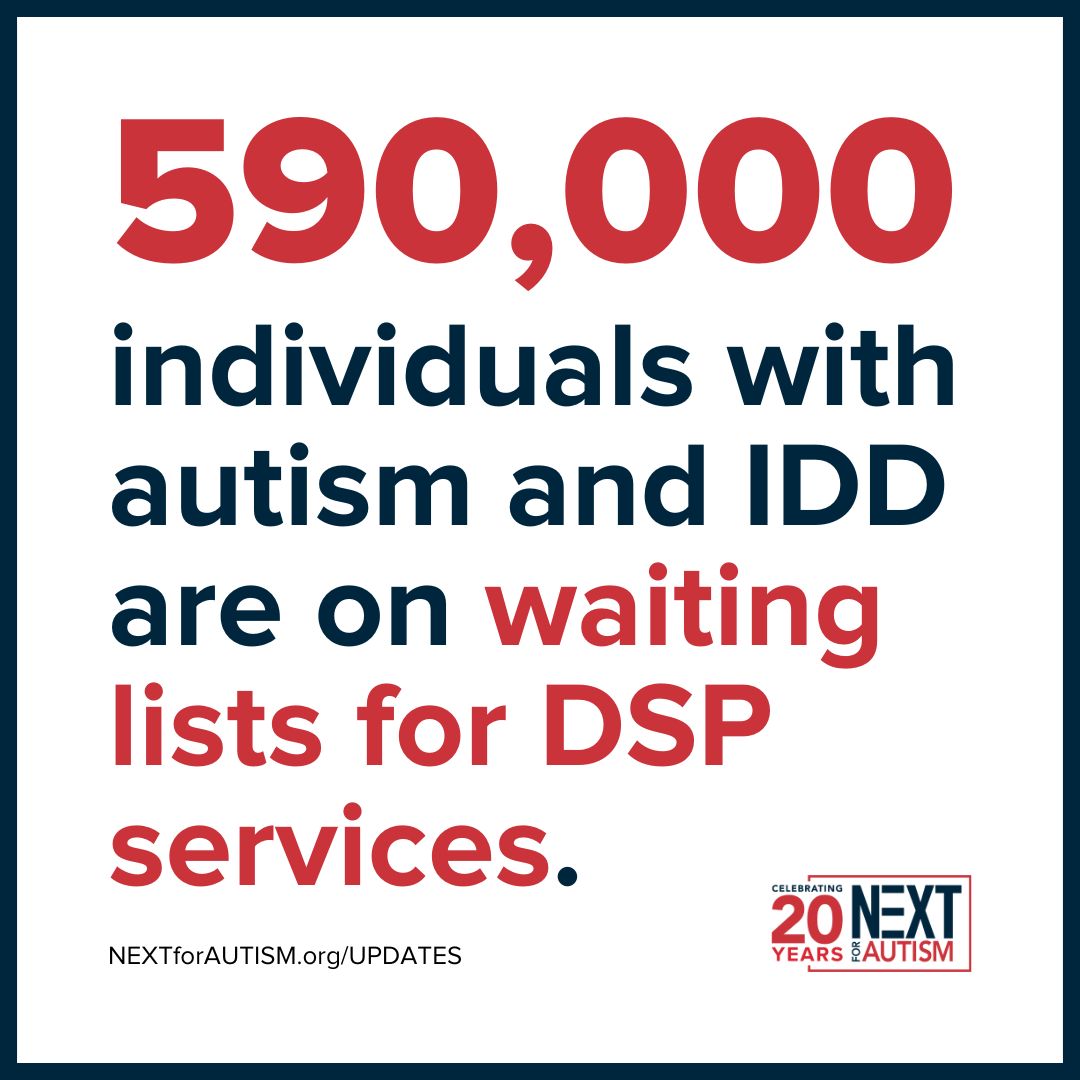
The shortage of DSPs has reached “catastrophic levels,” according to Ancor’s 2022 survey report, with the lingering effects of the COVID-19 pandemic exacerbating the situation. This overwhelming scarcity not only impacts the availability of care but also takes a heavy toll on those working in this field. Despite their love for the work and the opportunity to make a difference in people’s lives, DSPs often face burnout and “compassion fatigue,” leading to national turnover rates of just below 50 percent, further highlighting the magnitude of the issue.
Adding to the crisis, wages for DSPs are inadequately low, leaving these crucial and much needed professionals with difficult choices between their passion for the job and their personal financial needs. While wages vary by state, DSPs often only earn federal minimum wage, despite the demands, complexities, and important nature of their role.
The staffing shortage is felt most significantly when it comes to services for autistic adults, when they age out of school and programs that are guaranteed through the federal Individuals with Disabilities Education Act (IDEA). Depending on the state, individuals age out of services starting at age 21. For the young adults that find themselves in waiting-list limbo and between programs, many may stagnate at home waiting for an available program. During the lengthy wait, the young adults may lose progress made during their school years. Further compounding the DSP crisis and its impact on autistic adults, is that 63 percent of community providers discontinued programs or services last year in response to the lack of enough DSPs.
To boost retention, DSPs want more opportunities for professional development and career advancement. In the past, DSPs were trained as caregivers, limited to daily living activities such as bathing, dressing and meal preparation. But in recent years, it’s become clear that the role of the DSP is growing, with the opportunity to have greater impact on the overall well-being of those they support, and in turn greater satisfaction.
Today the job of a DSP is a complex and demanding one, requiring training in a variety of methods and an understanding of challenging health conditions, emergency preparedness and responsiveness, teaching and reinforcement strategies, administration, community resources, and more.
Everybody talks about caregiving, which is important, but it’s so much more,” says Brad Walker, Vice-President, Strategic Adult Initiatives at NEXT for AUTISM. “It’s no longer about doing things for people. It’s about helping them learn how to do things for themselves. By working as a DSP, you become someone’s teacher and mentor, which is gratifying and rewarding. And most important, is the positive impact on the autistic individuals the DSPs are supporting.”
According to a 2023 Relias survey of 763 DSP respondents, expanding their skills, acquiring specialized knowledge, and pursuing advanced certifications could significantly enhance DSP job satisfaction, expertise, and retention. In fact, 56 percent of survey respondents expressed a strong likelihood of staying with their employer if offered career advancement opportunities, ranging from “very much” to “extremely” more likely.
Every autistic adult deserves to live their best life, just like John, who is benefiting from the care and support of dedicated DSPs. However, the shortage of DSPs has reached a critical level, demanding urgent attention and action. By recognizing the invaluable work of DSPs, providing fair compensation, and offering opportunities for professional growth, we can help bridge the gap. The impact of dedicated DSPs like Adam and the transformative programs like those offered by NEXT for AUTISM can lead the way for a more inclusive and supportive society, empowering those with autism to thrive and fulfill their potential.
Imagine John’s life without the support of a dedicated, compassionate, and trained DSP. Now multiply those times the nearly half a million individuals currently on a waitlist. Let’s work to help solve the DSP crisis, to enhance the lives of autistic individuals.
To address the critical DSP shortage, NEXT for AUTISM is taking proactive steps through innovative programs. The NEXT for DSP program offers a transformative professional development curriculum, turning mandatory compliance into skill-based training and coaching for DSPs. Combining virtual e-learning, classroom instruction, and mentoring, along with ongoing observation and feedback sessions, this comprehensive program empowers DSPs to enhance their performance in service delivery and increase their marketability in the human services sector. In addition, NEXT recently launched NEXT for AUTISM FELLOWS, a national scholarship program for students and professionals. This groundbreaking initiative provides tuition assistance and paid, hands-on work experience in a DSP-related role to individuals interested in pursuing meaningful work with autistic and neurodivergent adults.
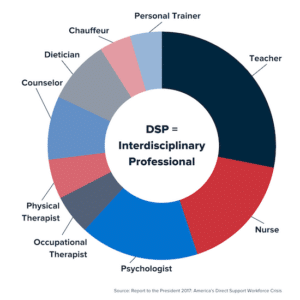
DSPs work directly with people with intellectual or developmental disabilities to assist them with daily life as well as support their independence and overall well-being. The role of a DSP can be multi-faceted, similar to many licensed healthcare professionals (see chart). Their mandated training, however, only focuses on safety and compliance. This leaves DSPs without the tools to support the well-being of the whole person, this starts with guidance from DSPs.
Given the importance of their work, it’s crucial to support DSPs with training and professional development that gives them the tools to help their clients live their best lives, as well as professional development to ensure job and personal satisfaction.
*Names changed to protect identities.

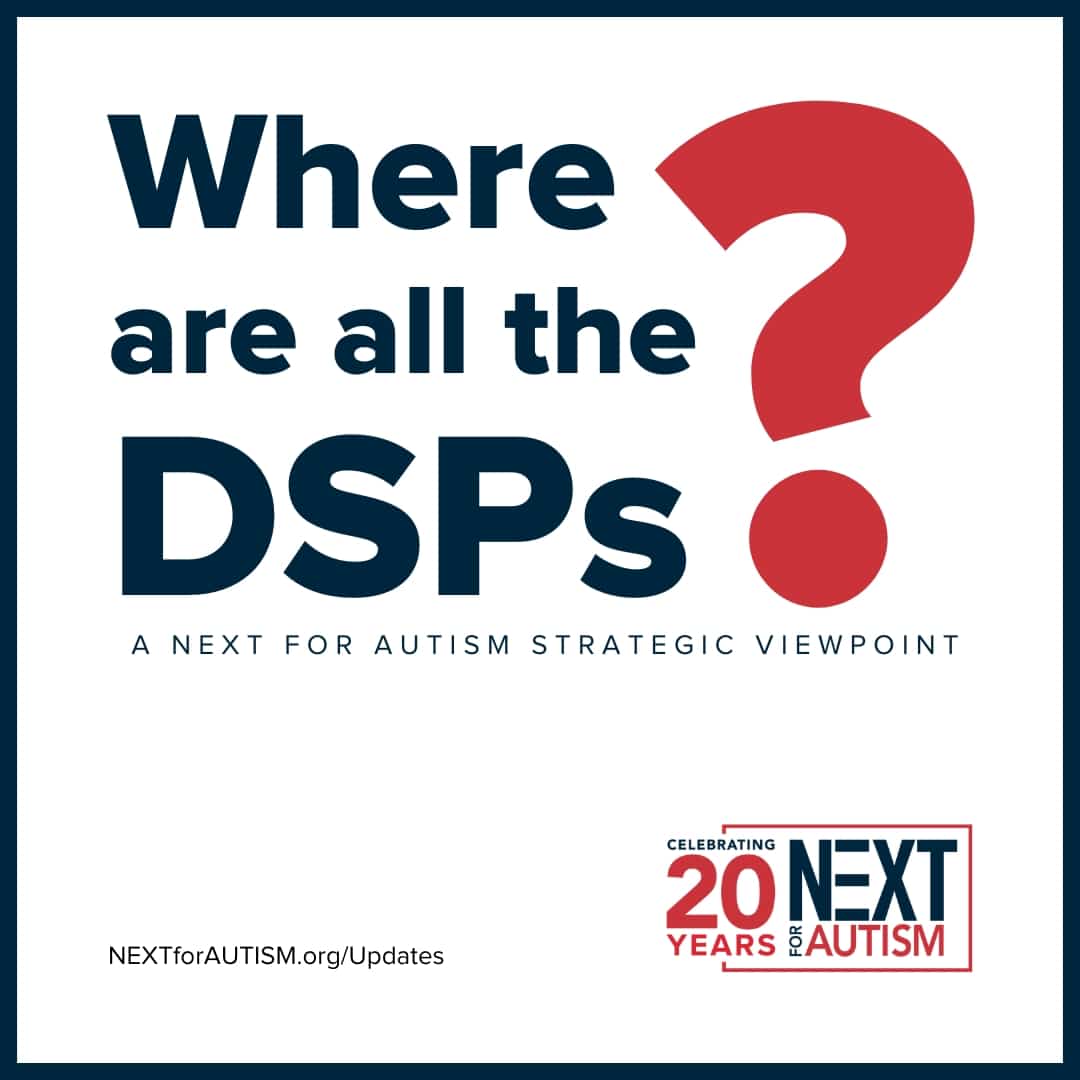
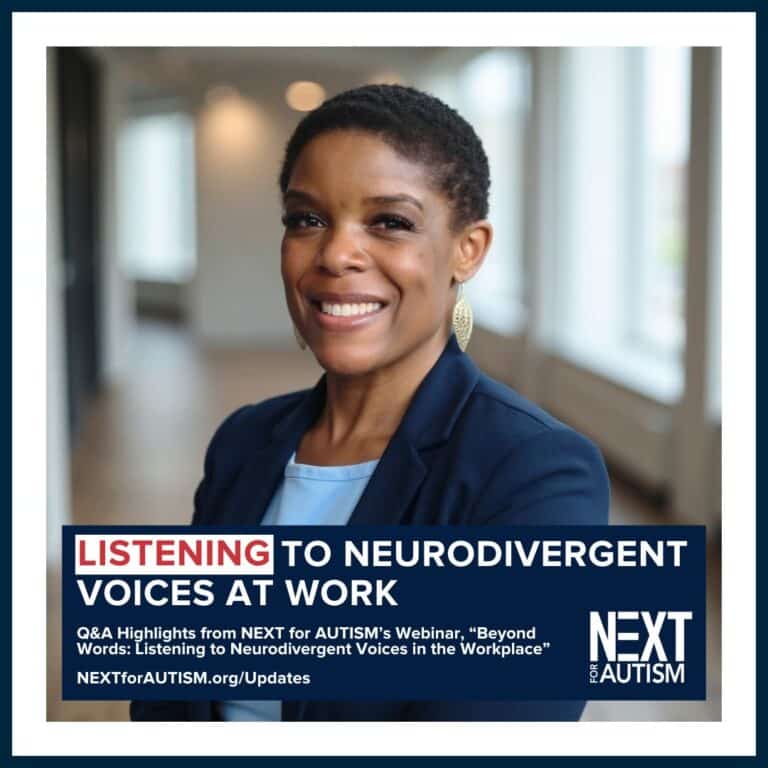
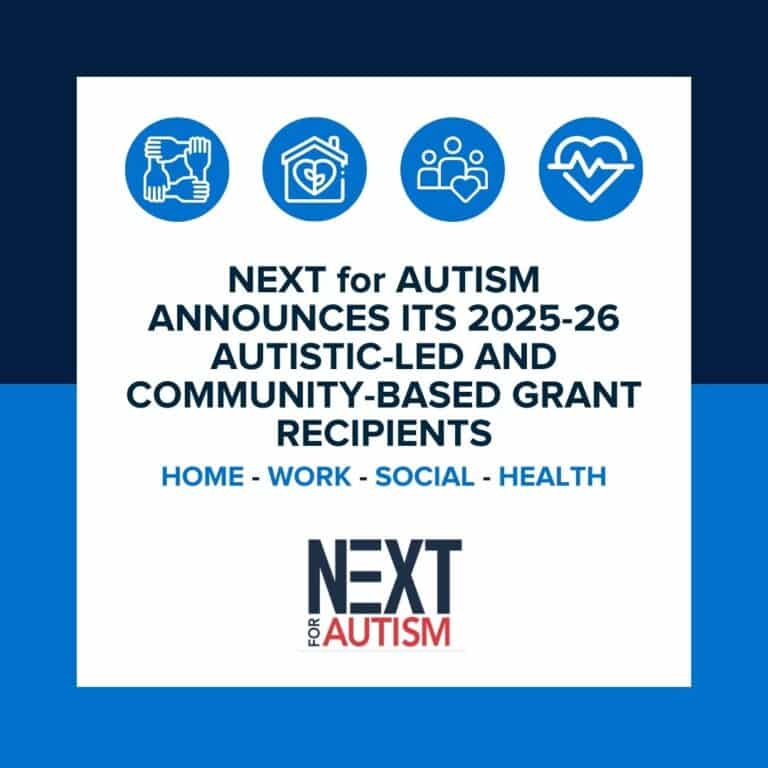
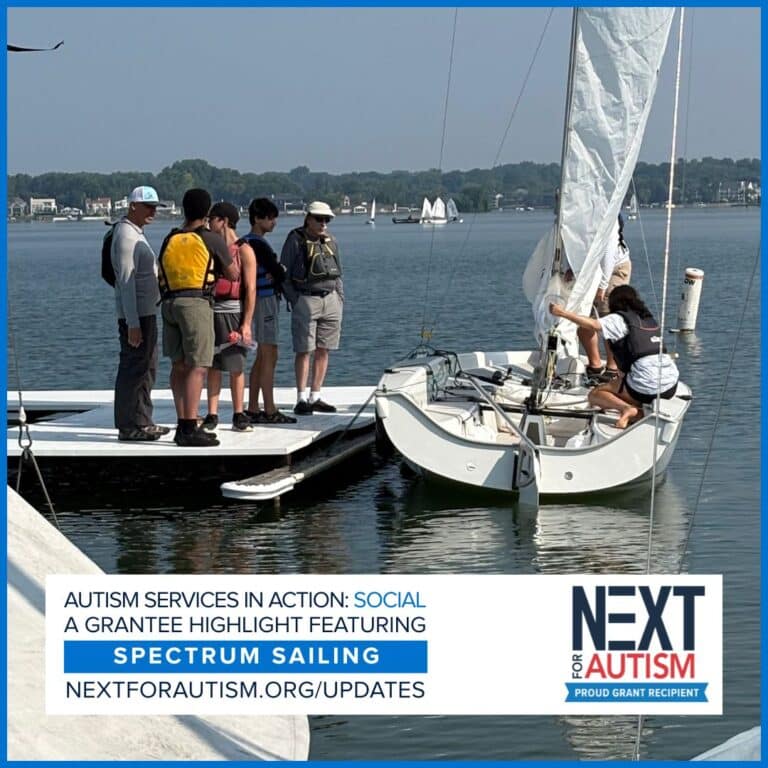


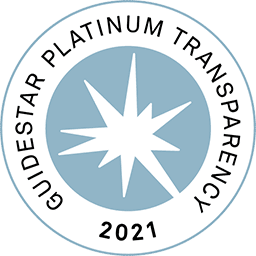
Leave a Reply